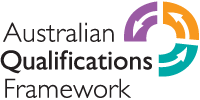CLET RPL is Helping Military and Police Transition with Conf...
This unit specifies the skills and knowledge required to manage conflict and security risks using negotiation techniques.
It includes:
reviewing and applying workplace procedures and policies including workplace health and safety (WHS) to comply with legal rights and responsibilities
maintaining situational awareness to identify and assess sources of conflict and risk, and selecting and implementing response options within the scope of own authority
using negotiation and communication techniques to resolve conflict, minimise risk and encourage a shared approach to conflict resolution
working with others to report, evaluate and improve response procedures.
It applies to people working independently or under limited supervision as members of a security team.
This unit may form part of the licensing requirements for people engaged in security operations in those states and territories where these are regulated activities.





